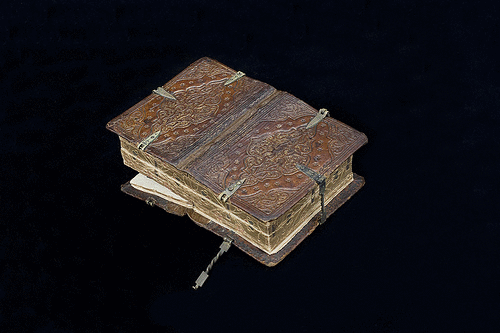Open educational practices have provided us with new ways of constructing higher education, but at the same time have been mapped onto many of our existing artefacts and systems such as textbooks, learning design processes such as ADDIE, and course publishing models. The textbook has been a prominent focus in the discourses and practices of open educational practices. Textbooks “mediate the structure of knowledge on the one hand, and the performance of teaching and learning on the other….At the same time, however, textbooks contain a deep contradiction. They are today’s mediation of yesterday’s knowledge in the light of educational projections about tomorrow” (Hamilton, 2003). We suspect a similar contradiction applies to textbooks and open pedagogies. While open licensing enables certain pedagogical practices, what other aspects of the textbook need to be rethought in the context of open pedagogies and practices? In “Rethinking the textbook,” we propose the idea of the “untextbook” and will facilitate a set of group processes to explore it further.
This project has two goals. The first is to develop a reader in critical instructional design that is conceptualized from the beginning with its use in open pedagogy (Cronin, 2017). How can we build open pedagogy into the design of the untextbook resource itself so that students can contribute more effectively? How can the untextbook challenge traditional structures, roles and hierarchies within learning environments? The second goal is to examine how the collaborative development of an untextbook can challenge traditional notions, processes and roles of the instructional designer. As instructional designers are asked to change practice in response to more critical approaches, how can a critical open learning design lens mediate the course development process across the university?
Through a series of workshops and online sessions, participants will be challenged to be creative about the idea of the “untextbook” as conceptualized with its use in open pedagogy (Cronin, 2017). The ideas generated in these sessions will provide input for the creation of an “untextbook” on critical instructional design and will be the basis for a collaborative examination of instructional design practices with the goal of a critical examination of practice. The benefits of the research include providing data for a research paper to be published in a relevant academic journal as a contribution to instructional design and textbook development practice; and furthermore the foundations will be laid for an open textbook/reader on critical instructional design as a contribution to the academic writing and publishing and instructional design fields.
Cronin, C. (2017). Openness and Praxis: Exploring the Use of Open Educational Practices in Higher Education. The International Review of Research in Open and Distributed Learning,18(5). doi:http://dx.doi.org/10.19173/irrodl.v18i5.3096
Hamilton, D. (2003). Instruction in the making: Peter Ramos and the beginnings of modern schooling. Accessed at http://www.onlineassessment.nu/onlineas_webb/contact_us/Umea/David/ramustext030404.pdf


